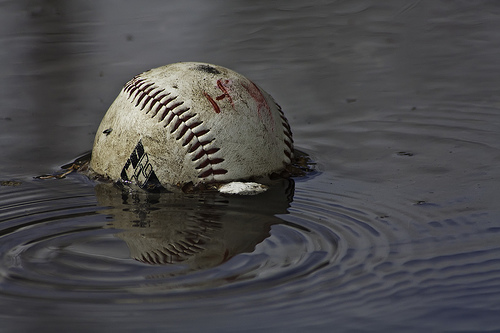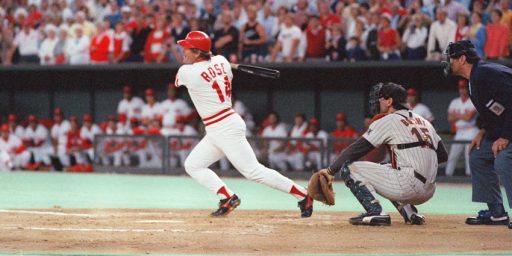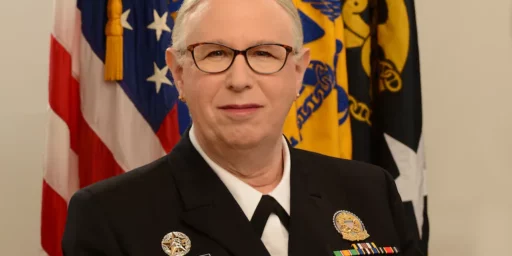Sotomayor and the Baseball Strike
 Something that’s gotten lost in the attacks on Sonia Sotomayor’s record of aligning herself with federal law and binding precedent in Ricci and Port Chester is that fact that Sonia Sotomayor was the Federal District Judge (appointed by George H.W. Bush) who ended the baseball strike.
Something that’s gotten lost in the attacks on Sonia Sotomayor’s record of aligning herself with federal law and binding precedent in Ricci and Port Chester is that fact that Sonia Sotomayor was the Federal District Judge (appointed by George H.W. Bush) who ended the baseball strike.
Sotomayor agreed with the N.L.R.B. that the owners could not willy-nilly institute their 1950s-style version of labor relations. If she did not issue an injunction, she wrote, “the harm to the players is the very one the owners’ unfair labor practices sought to achieve, i.e., an alteration of free-agency rights and a skewing of their worth.”
She added, “Issuing the injunction before opening day is important to ensure that the symbolic value of that day is not tainted by an unfair labor practice and the N.L.R.B.’s inability to take effective steps against its perpetuation.”
Gary R. Roberts, the dean of the law school at Indiana University, called it the “right decision from a legal and tactical standpoint,” and the one of the most important ones in baseball history, short of the Supreme Court’s antitrust rulings.
Sotomayor’s ruling restored the terms of the previous labor agreement so the season could go forward. Randy Levine, who became the owners’ chief labor negotiator five months after Sotomayor’s injunction, said her decision “gave both sides an opportunity to take a breath, to take stock of where they were.” Levine, now the Yankees’ president, added, “It led to the good-faith bargaining that produced revenue sharing, the luxury tax and interleague play.”
As someone who is (a) not a baseball fan and (b) finds the special privileges given to sports leagues in the United States to be outrageously silly, this isn’t something that matters a whole lot to me. But I thought that some baseball fans out there might find it interesting. (Also, I can’t believe that George Will, of all people, didn’t mention it.)
UPDATE (James Joyner): ABC’s Jake Tapper sought Will out for his opinion:
“The president is a gentleman and a scholar and a great ornament to our society, but he’s not a great baseball historian,” Will told us.
“He says that when she ended the baseball impasse that was interrupting play in 1994 and 1995, she saved baseball,” Will says. “Far from it. What she did was overturn in a sense, the essence, the underlies, the essential theory of American labor relations, which is the parties should slug it out because they know best and whoever wins, wins.”
Will says that “in fact, what she did was take sides, took union’s side against the management, and in so-doing, wasted 262 days of negotiations. That, far from saving baseball, consigned baseball to seven more years of an unreformed economic system, which happened to be the seven worst years in terms of competitive balance.”
Sotomayor, Will says, “delayed the restructuring of baseball. So I would say that far from her saving baseball, as the president says, that in fact, baseball thrives now because we got over the damage that her judicial activism did in that strike.”
Heh. On the plus side, Sotomayor has the good sense not to have been photographed wearing blue jeans, thus saving herself the worst of Will’s scorn.
Top photo by Flickr user Marcus McCurdy under Creative Commons license. Will inset photo by Reuters in USA Today.




Perhaps that’s because he didn’t find the case of the multi-millionare players and their union, nor the ‘compassion’ on those poor multi-millionaire players, to be particularly compelling.
I wrote at the time (I was holding court on the old GT network at the time) that the move was specifically designed to buttress the Union’s infleunce on the game, and that anything that did that in the long run would be bad for baseball. She didn’t save baseball per se’… she saved the player’s union. The effect of that, I wrote will eventually kill baseball offf outright.
I have seen nothing between then and now to change my mind on the point. Interestingly, the UAW has given us a parallel case, since then.
The only thing that restored some interest for me was the 1998 season featuring McGwire and Sosa’s home run race…only cynicism since.
Please don’t construe this to mean that I sympathize with the players or the player’s union necessarily, but the union, the owners, AND the league’s administration all did their part to give fans a bad taste in their mouths.
(Shrug) No argument, Brian.
I suggest though that as regards fan feelings on the matter, you dig a little deeper into the previous baseball strike, which played into the fan feelings regards the 95 issue as much as anything else. Baseball is a very history laden game, and that history surrounding the first strike played a lot louder than many will want to admit, I think.
Yeah, that’s probably right.
Somehow I think that’s something we should all be thankful for.